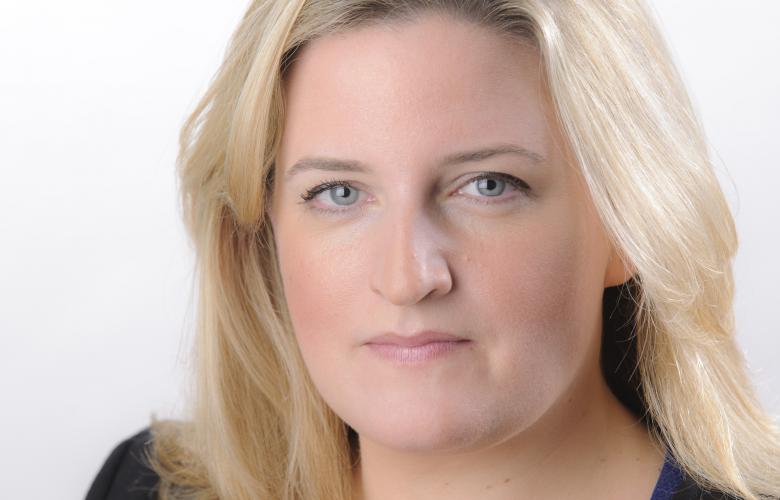Global real estate firm Knight Frank has been tracking the spending habits of the world’s wealthiest people through its annual Wealth Report for the past nine years, focusing on the property markets. We spoke to Grainne Gilmore, Head of Residential Research UK at Knight Frank, when she was in Sydney about why the world’s ultra high net worth individuals are now paying more attention to Australian residential property.
Over the past decade, Australia was positioned fourth in terms of countries with the greatest foreign inflows of High Net Worth Individuals with a gain of 22,000, which represents 14% of Australia's total HNWI population. In 2014, there were 1,734 Ultra High Net Worth Individuals living in Australia who had a net worth of over US$30 million. Sydney accommodates half of these individuals, with Melbourne (26%), Perth (15%), and Brisbane (14%) taking up the balance. Demand for property investment in Australia has been driven by strong immigration inflows from China, Indonesia and India.
“You are on the Asia time zone, and in Europe we’re not. That is a big plus,” says Gilmore. “Australia has always been winning in terms of lifestyle, and Sydney and Melbourne are perfectly placed. In Sydney now you have a pipeline of prime and super prime properties coming on the waterfront, so this is an offering that you perhaps haven’t really had before.”
In London, super prime property is classed as 10 million pounds or more and prime property is anything above 2 million pounds. “You’re now entering that space which will draw attention of the globally wealthy,” says Gilmore. “They do have homes in various different locations around the world. Chinese ultra-high net worth individuals buy five residences around the world, not all in China, so it’s London, Paris, New York, Geneva, maybe somewhere in Africa, Dubai. There’s probably a link between the supply coming on and drawing interest from ultra-high net worth individuals.”
Another big driver of ultra-wealthy people investing is residential property is education. “You’re in the same time zone as Asia, and you have a lot of people who want to send their children abroad to study, and you have the educational facilities here. You’ve probably already seen that into the investment in lower end of prime, which you do have a lot of, people buying places for their children to live in while they go to university, so it’s really stepping up the offering on the residential front which is probably drawing the attention of ultra high net worth individuals in Sydney.”
A key trend with the world’s wealthiest individuals is buying commercial property after they’ve made an initial residential purchase in the same markets. “They dip their toe in with a residential purchase and the next thing you know they’re buying a trophy commercial asset,” says Gilmore.
Tracking why ultra wealthy people move is a key to understanding the real estate market, says Gilmore. The Wealth Report contains an attitude survey of 500 bankers who have clients that are ultra high net worth individuals with assets worth $US1.7 billion, and when asked why their clients move, they said ultra high net worth individuals tend to move somewhere based on personal or business connections. “So perhaps you went to university in London, then moved back home, then 15 years later you’re back there and once you’re there, and you’re familiar, and you’ve got back in touch with your business contacts—these guys are looking at business development opportunities, always—it tends to lead into the commercial from the residential,” says Gilmore. “We’ve seen it a lot in New York, we’ve seen it a lot in London, so we’re assuming that the trend will be replicated elsewhere for ultra high net worth individuals.”
Knight Frank’s research has also found that wealthy Chinese visitors to Australia tend to spend more when holidaying here than they do when visiting London. “It’s hard to know what the motives are, it could be that you’re in the same time zone and the flights are shorter, it could be that it’s easier to get everything home that you’ve purchased, it could just be that they’re spending longer here so they’re spending more on hotels because they’re staying longer,” says Gilmore.
The number of Chinese coming to the UK on vacation each year is about 200,000 whereas Australia is up to about 800,000, a sharp increase that has only occurred in the past four years. “It just underlines that really strong connection between Australia and China.”
Australia is especially attractive to wealthy foreigners because of our relative political and economic security. “When you’re looking at the ultra globally mobile, we ask in our survey, ‘What’s the biggest reason you might change your domicile?’ The biggest reasons people state are wealth taxes or property taxes, economic uncertainty, or geopolitical insecurity,” said Gilmore. “When we asked people here in this region, only four per cent said they’d consider it and it was for business reasons. So the tax is not a problem here, lifestyle is not a problem, safety, security, so that tells a story about why people are interested in Sydney, why people are interested in Australia.”
Gilmore cited Birmingham, the UK’s second biggest city that has extended their runway to make sure Chinese flights can go direct to Birmingham. As a result there is massive Chinese investment there, and Chinese sovereign wealth funds have offered to help fund a high-speed railway direct from Birmingham to London, which has been talked about for years and years. “So while it takes a while to fly from Beijing to Birmingham, but if you build it, they will come,” says Gilmore. “Australia is perfectly positioned, you’re already seeing that flow of capital from institutions, from tourists, but it’s just a case of enabling it. That’s what we’ve learned from the Wealth Report.”









